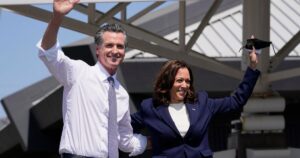Many countries are actively trying to avoid choosing sides between the United States and China, as per a report in The Economist. This strategy is driven by increasing tensions over issues like Taiwan, trade, human rights, and technology, leading to what’s described as a ‘superpower split.’ This approach is particularly evident in the Global South, echoing the principles of the Non-Aligned Movement during the Cold War, as these nations navigate the challenge of balancing economic benefits from China with security concerns and pressure from the U.S. and its allies.
The U.S. and China are both pursuing strategies to reduce economic dependence on each other, impacting global trade and investment. Smaller and developing nations face the challenge of managing their foreign policies to avoid alienating either superpower, while multinational corporations must navigate complex regulatory environments and ethical considerations in both markets. Experts hold differing views, with some prioritizing national interests and military strength, while others advocate for international cooperation and strengthened global institutions.
The Economist reports that the United States’ involvement in the Iraq War led to a shift in military focus towards counterinsurgency, which allowed China to modernize its military. This modernization has enabled China to exert greater influence in international affairs, particularly in its region, potentially leading to increased assertiveness and conflicts. The US military now faces the challenge of adapting to great power competition, requiring changes in doctrine, training, and equipment, while US allies in Asia may feel pressure to strengthen their defenses.
U.S. and Chinese officials have completed high-level trade talks in Geneva, with both parties expressing optimism, Reuters reports. U.S. representatives cited a ‘deal’ aimed at reducing the U.S. trade deficit, while Chinese officials noted an ‘important consensus’ and plans to establish a new economic dialogue forum. Details of the agreement were expected to be released on Monday.
The talks occurred amidst a backdrop of recent trade tensions between the two nations, including reciprocal tariffs, and global economic slowdown concerns. The timing is also notable given the upcoming U.S. presidential election, where a trade agreement could be seen as a political achievement for the current administration.
President Donald Trump suggested an 80% tariff on Chinese goods, a specific alternative to existing tariffs, before upcoming U.S.-China talks, according to a report in Reuters. U.S. Treasury Secretary Scott Bessent and chief trade negotiator Jamieson Greer are expected to participate in the discussions.
This statement continues the trade war initiated by the Trump administration, which has involved escalating tariffs and negotiations since 2018. The suggestion is likely a negotiating tactic to strengthen the U.S. position before the talks, signaling a willingness to increase pressure on China.
Gold prices saw a rise of over 1% due to a weaker dollar and market reactions to tariff-related comments from President Donald Trump before a U.S.-China meeting, Reuters reports. Spot gold experienced a 1.1% increase, reaching $3,340.29 an ounce at 1346 ET (17:46 GMT), marking a 3.1% gain for the week; gold is often seen as a safe haven during geopolitical uncertainty.
In the past, Donald Trump served as the President of the United States. The upcoming discussions between the U.S. and China are being closely watched by investors, as potential trade resolutions could impact the value of gold and other assets.
U.S. Treasury Secretary Scott Bessent and U.S. Trade Representative Jamieson Greer met with China’s Vice Premier He Lifeng in Geneva on May 10, according to a report by Reuters. These high-level talks are likely a continuation of ongoing trade negotiations between the U.S. and China, aimed at resolving trade imbalances, intellectual property disputes, and market access issues. The Biden administration is under pressure to demonstrate progress on trade issues with China, especially with the upcoming midterm elections in November 2026.
Economists believe this meeting is crucial for preventing further decoupling of the U.S. and Chinese economies, and that focus should be on addressing specific trade imbalances and intellectual property concerns. Geopolitical strategists suggest the U.S. needs to maintain a firm stance on issues such as human rights and security, even while engaging in economic dialogue. Political scientists believe the Chinese government is likely seeking to project an image of stability and cooperation, but will be unwilling to make concessions that undermine its national interests.
According to a report in The Hill, Treasury Department Secretary Scott Bessent announced “substantial progress” in trade discussions between the United States and China after a two-day meeting in Geneva, with further details expected Monday morning. These talks occur against the backdrop of the ongoing US-China trade war, which began under the Trump administration and involves tariffs and trade restrictions between the two countries.
Any perceived success in trade negotiations could be used by the current administration to bolster its image, especially with the upcoming US presidential election. These discussions are likely part of a series of diplomatic engagements aimed at de-escalating tensions and finding common ground on trade, security, and climate change.
Oil prices experienced a boost, settling nearly 2% higher on Friday, achieving their first weekly gains since mid-April, as a U.S. trade deal with the United Kingdom fueled investor optimism before discussions between high-ranking officials from Washington and Beijing, as per a report in Reuters. Brent crude futures rose by $1.07, or 1.7%, to settle at $63.91 a barrel, while U.S. West Texas Intermediate crude futures also saw gains.
The positive sentiment stems from the expectation that progress in U.S.-China trade relations could stimulate economic activity and increase demand for oil. The U.S.-China trade war has had a significant impact on global markets, and any signs of easing tensions tend to boost investor confidence. The Biden administration views positive trade talks as a potential political win, while the Chinese government sees it as a way to stabilize its economy.
U.S. Commerce Secretary Gina Raimondo (current as of 2025-05-11) stated that trade talks with China in Geneva aim to “de-escalate” tensions as negotiations entered their second day, as per a report in The Guardian. Howard Lutnick is the CEO of Cantor Fitzgerald, not the US Commerce Secretary, contrary to what was mentioned in the article. Lutnick anticipates multiple trade deals in the coming months, though specific countries were not named, with over 20 deals reportedly under consideration.
These talks follow previous high-level meetings between U.S. and Chinese officials, including visits by Secretary of State Antony Blinken and Treasury Secretary Janet Yellen, which sought to establish communication and address disagreements. The U.S. has consistently voiced concerns regarding China’s trade practices, such as intellectual property theft and state subsidies, which are key factors influencing the negotiations. A recent statement by Donald Trump about a potential ‘total reset’ in America-China ties has also been noted, but should be viewed in the context of his past inconsistent statements on the matter.
Taiwan’s President Lai Ching-te compared Taiwan to European nations on the brink of conflict with Nazi Germany in the 1930s, during a speech commemorating the end of World War II in Europe, as per a report in The Guardian. Lai stated that the message of history is clear, noting that Taiwan shares values and faces similar challenges as democracies involved in the European war. This comparison comes amid increased Chinese military activity near Taiwan, strengthening US-Taiwan relations, and Lai’s recent election, which China opposed.
The comparison has significant political implications for Taiwan, China, the United States and its allies, and the international community. It reinforces Taiwan’s image as a defender of democracy, potentially provoking China and pressuring the US to provide more support. Experts have differing views on the comparison, with some seeing it as a strategic move to gain international sympathy, while others view it as an irresponsible distortion of history.
U.S. Treasury Secretary Scott Bessent announced “substantial progress” in trade discussions with Chinese Vice Premier He Lifeng’s team in Geneva, with the goal of easing trade tensions between the U.S. and China, according to a report in Reuters. Bessent indicated that he would provide further details on Monday, while U.S. Trade Representative Jamieson Greer, who was also present at the talks, noted the existing differences.
The trade negotiations occur amidst broader geopolitical tensions and are influenced by the upcoming U.S. presidential election. A successful negotiation could be seen as a foreign policy achievement for the U.S. administration, while failure could be used to criticize their handling of China.
The United States expects a 10 percent baseline tariff to be in place for the foreseeable future for countries across the globe amid trade tensions, according to a report in The Hill. Commerce Secretary Howard Lutnick stated this expectation on CNN’s “State of the Union” this past Sunday.
This development is related to ongoing trade tensions, particularly with China, that began during the Donald Trump administration and have continued. The 10% baseline tariff may be a broader application of tariffs similar to those initially imposed under Section 301 of the Trade Act of 1974, which targeted China for unfair trade practices. This decision is also linked to domestic concerns about inflation, with arguments for and against tariffs influencing the policy.
U.S. Commerce Secretary Howard Lutnick said that the current bilateral discussions with China in Geneva are focused on reducing trade tensions between the two major global powers, according to a report in Reuters. Lutnick anticipates several trade agreements within the next few months, though he did not specify which countries would be involved. Treasury Secretary Scott Bessent’s involvement was also noted.
The U.S. and China have been engaged in trade disputes involving tariffs and concerns over intellectual property, and these talks follow previous high-level engagements, including visits by Secretary of State Blinken and Treasury Secretary Yellen to China. Successful de-escalation could benefit the Biden administration and provide economic stability for China, while potentially lowering costs for U.S. businesses and consumers.










